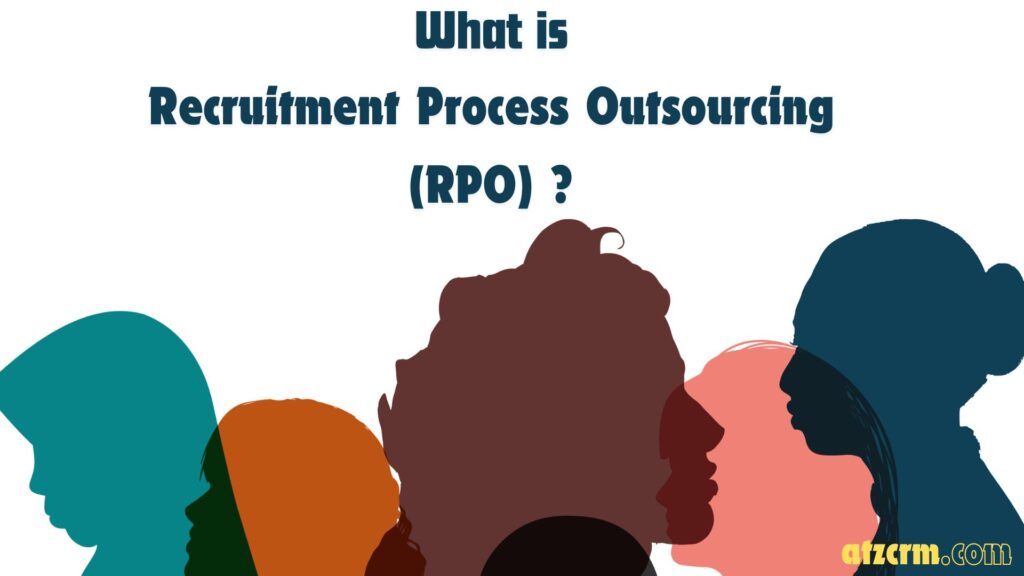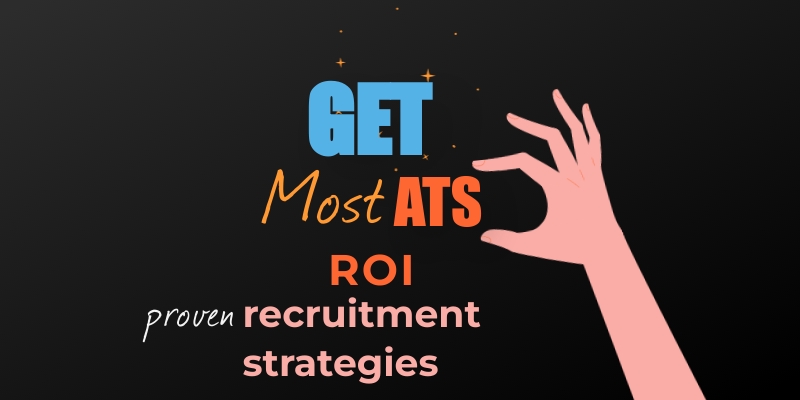What is Recruitment Process Outsourcing (RPO)?
Recruitment Process Outsourcing (RPO) is like hiring a secret agent for your HR department. An RPO provider takes over your recruitment process, either in part or in full, acting as an extension of your HR team. They bring in the big guns—industry expertise, cutting-edge technology, and a vast network of top talent—to streamline and supercharge your hiring process.
Think of RPO as a buffet of recruitment services: you can opt for a full-service package where the provider handles everything from job postings to onboarding, or you can pick and choose specific services, like sourcing candidates or managing interviews. It’s a flexible, scalable solution designed to meet your unique hiring needs.
Why RPO?
You might be wondering, ”Why would I outsource my recruitment when I already have an HR team in place?” Well, let’s consider this: recruitment isn’t just about filling vacancies. It’s about getting the right people into the right roles exactly when you need them. It’s a specialized field that requires a deep understanding of the job market, candidate behavior, and recruitment strategies. An RPO provider lives and breathes this stuff.
Here are some reasons why RPO might be the game-changer your business needs:
- Scalability and Flexibility: Your business isn’t static, and neither are your recruitment needs. Whether you’re ramping up for a big project or facing seasonal fluctuations, RPO allows you to scale your recruitment efforts up or down with ease. It’s like having an elastic workforce—ready to expand or contract based on your needs.
- Access to Top Talent: Ever wonder how some companies always seem to snatch up the best candidates? Spoiler alert: they’re probably using RPO. RPO providers have access to extensive talent pools and passive candidates—those elusive professionals who aren’t actively job hunting but might just be tempted by the right offer. They know where to look, how to attract top talent, and, most importantly, how to convince them that your company is where they need to be.
- Faster Time-to-Hire: In the fast-paced business world, time is money. Every day a critical position goes unfilled, it can cost your company in lost productivity, delayed projects, and missed opportunities. RPO providers streamline the hiring process, reducing the time it takes to fill positions. They’re like the Flash of recruitment—super fast and always on target.
- Improved Employer Branding: Your employer brand is your company’s reputation as a place to work. A strong employer brand attracts top talent, while a weak one repels it. RPO providers help enhance your employer brand by ensuring a consistent, positive candidate experience. They act as ambassadors for your brand, promoting your company’s culture, values, and benefits to potential candidates.
- Cost-Effective Hiring: Hiring is expensive. Between job ads, interviewing, and onboarding, the costs can add up quickly. But with RPO, you can often achieve a more cost-effective recruitment process. How? By leveraging the provider’s economies of scale, specialized tools, and expertise, you can reduce time-to-hire, minimize bad hires, and ultimately lower your overall recruitment costs.
Types of RPO Models
Not all RPOs are created equal, and that’s a good thing! Different businesses have different needs, so RPO providers offer various models to cater to those unique requirements. Here’s a quick rundown:
- End-to-End RPO: This is the full package, where the RPO provider takes over your entire recruitment process from start to finish. It’s like handing them the keys to your recruitment kingdom. They handle everything—from job postings and candidate sourcing to interviewing, hiring, and onboarding.
- Project-Based RPO: Need to fill a bunch of positions for a new project, but don’t want to commit to a long-term contract? Project-based RPO is your answer. The provider steps in for a specific project or period, helping you quickly scale your workforce without the long-term commitment.
- Selective RPO: Sometimes, you don’t need the whole nine yards—just a few key services. Selective RPO allows you to outsource specific parts of the recruitment process, like candidate sourcing, screening, or background checks. It’s a pick-and-mix approach that gives you control over which services you want to outsource.
- Recruiter on Demand (ROD): Think of ROD as hiring a temp for your recruitment team. If your in-house team is overwhelmed, you can bring in an RPO provider’s recruiters on a temporary basis to help manage the workload. It’s a great solution for short-term spikes in hiring or when you need extra hands on deck.
When to Consider RPO
You might be wondering, “Is RPO right for me?” Well, if you’re nodding along to any of the following scenarios, the answer is probably yes:
- Rapid Growth: Your business is expanding faster than your in-house team can handle. You need to hire quickly, and you need to do it right.
- High Turnover: You’re struggling with high employee turnover and need a steady stream of quality candidates to fill the gaps.
- Specialized Roles: You have niche positions that require specific skills and expertise, making it challenging to find the right candidates.
- Seasonal Hiring: Your business experiences seasonal peaks in hiring, and you need a flexible solution that can scale up or down as needed.
- Recruitment Challenges: You’re facing challenges like long time-to-hire, low-quality candidates, or a weak employer brand.
How to Choose the Right RPO Provider
Choosing an RPO provider is like choosing a business partner—it’s a big decision that requires careful consideration. Here are a few suggestions to help you make the best decision:
- Experience and Expertise: Look for an RPO provider with a proven track record in your industry. They should understand your business, your hiring challenges, and your talent needs.
- Cultural Fit: Your RPO provider will be an extension of your HR team, so it’s crucial that they align with your company’s culture, values, and mission. A good cultural fit ensures a smooth partnership and a consistent candidate experience.
- Technology and Tools: Recruitment technology is constantly evolving, and your RPO provider should be at the forefront of these advancements. Ask about the tools and technologies they use to source, screen, and manage candidates.
- Scalability and Flexibility: Your business is dynamic, and your RPO provider should be too. Look for a provider who can scale their services up or down based on your changing needs.
- Transparency and Communication: A successful RPO partnership relies on open communication and transparency. Your provider should be clear about their processes, pricing, and performance metrics. Regular updates and reports are essential to ensure alignment and track progress.
The Future of RPO
As the business world continues to evolve, so too does the role of RPO. With advancements in artificial intelligence, data analytics, and automation, the future of RPO looks brighter (and smarter) than ever. Here are some trends worth noting:
- AI-Powered Recruitment: Artificial intelligence is revolutionizing recruitment by automating repetitive tasks, analyzing candidate data, and predicting hiring outcomes. RPO providers are increasingly leveraging AI to enhance their services, from candidate sourcing to screening and even interviewing.
- Data-Driven Decision Making: The future of recruitment is all about data. RPO providers are using data analytics to gain insights into candidate behavior, predict hiring trends, and optimize the recruitment process. By harnessing the power of data, they can make more informed decisions and deliver better results.
- Employer Branding 2.0: As competition for top talent intensifies, employer branding will become even more critical. RPO providers are expected to play a more significant role in crafting and promoting a company’s employer brand, ensuring it resonates with candidates and stands out in the job market.
- Diversity and Inclusion: RPO providers are increasingly focused on helping companies build diverse and inclusive workforces. By using unbiased recruitment practices and expanding talent pools, they can help companies attract and retain a more diverse range of candidates.
- Remote Work and Global Talent Pools: The rise of remote work has opened up new opportunities for accessing global talent. RPO providers are now tapping into these international talent pools, offering companies access to a wider range of candidates, regardless of location.
Conclusion
Recruitment Process Outsourcing is more than just a solution to your hiring challenges—it’s a strategic advantage that can transform your business. Whether you’re looking to reduce costs, improve the quality of hires, or enhance your employer brand, RPO offers the expertise, flexibility, and scalability to meet your needs.
By partnering with the right RPO provider, you can focus on what you do best—growing your business—while they handle the complexities of recruitment. It’s like having a secret weapon in the war for talent, and who wouldn’t want that?
Are you prepared to elevate your recruitment process to the next level? Let ATZ CRM be your guide. Try our free plan today.
Related Blog: Discover 10 Free Most Powerful ATS for Small Businesses


